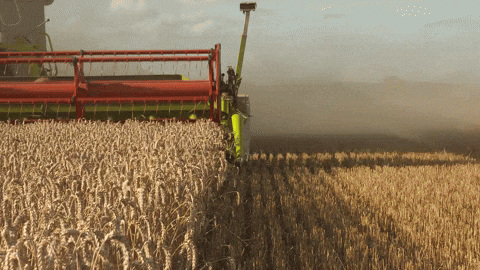Growing more with less is the name of the game for crop production. And the game is heating up as companies race to introduce more hybrid wheat to the U.S.
The rundown: Corteva is looking to take the lead by announcing a non-genetically modified hard red winter (HRW) wheat variety. HRW wheat is the most widely grown class in the U.S.
Corteva says the hybrid variety will boost yields by 10%, improve drought resistance, and outpace competitors when bringing these traits into commercial seed production.
Breaking barriers: Seed companies have been working on better genetics for decades to maintain production with the same—or even less—land. It’s proved far easier to modify corn yields, with those boosts far outpacing wheat. Now, Corteva wants to be a pioneer in reducing that discrepancy.
Soundbite: “Pioneer introduced hybrid corn in the 1920s, and since then our technology has helped achieve more than 600% increases in average yields. With our new, one-of-a-kind proprietary technology for wheat, we’re now similarly poised to bring the revolutionary benefits and yield potential of hybridization to yet another core crop.” — Sam Eathington, Corteva Chief Technology and Digital Officer
Neck and neck: Corteva’s announcement came months after the U.S. granted regulatory approval for a genetically modified wheat variety from Argentina-based Bioceres that has drought-resistant traits. But the seed needs more testing before it hits the commercial market.
Corteva plans to launch its hybrid HRW wheat in the North American market in 2027.
Making Insecticides Work Again
Insecticides have been a linchpin of crop production for hundreds of years. But nothing lasts...
A Speed Bump for Genetically Engineered Plants
Genetically engineering plants just got a little harder. California girls judges, they’re...
Milk Meets Microscopes: USDA’s Mandatory Testing
It’s (bird) flu and cold season. And the U.S. is taking it seriously. Cows in quarantine: You may...




